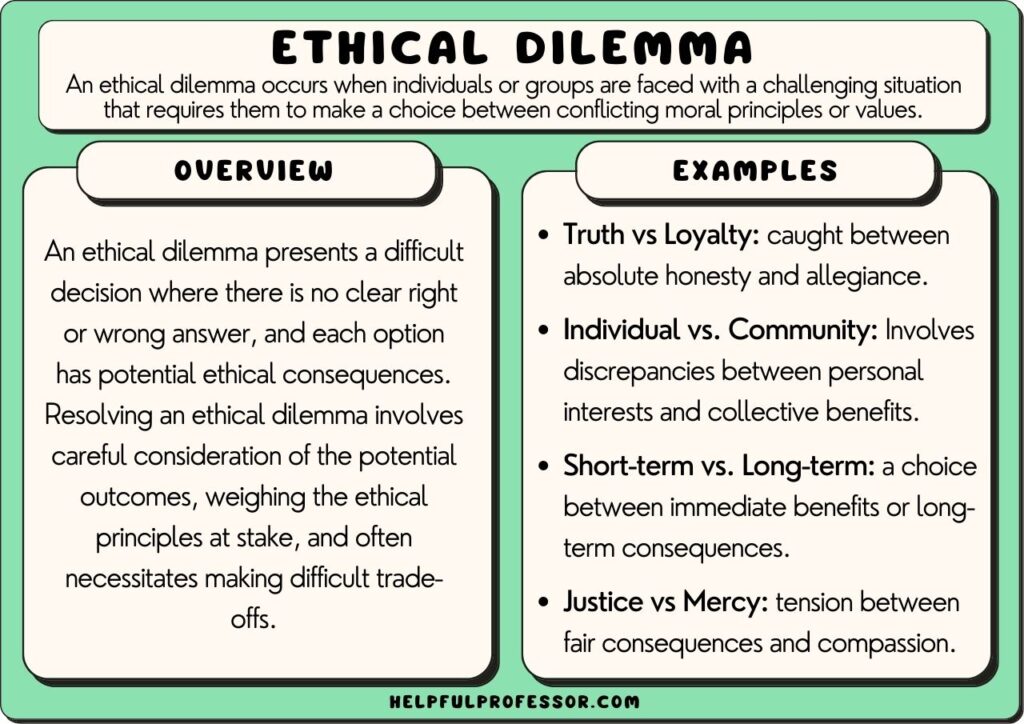

Ethical dilemmas in luxury travel are becoming increasingly important considerations for travelers and industry stakeholders alike. This article explores the challenges facing the luxury travel industry in balancing extravagant experiences with sustainable and responsible practices, and highlights strategies for addressing these ethical concerns. Understanding these ethical dilemmas is crucial for ensuring the long-term health and prosperity of the luxury tourism sector. This piece will delve into topics such as environmental impact, community engagement, fair wages, and cultural sensitivity, and explore practical steps that both travelers and businesses can take to promote more responsible practices. The structure will be as follows: first, a discussion of general ethical concerns; next, a detailed look at the environmental impact and community involvement challenges; and finally, recommendations and insights for consumers and businesses.
Understanding Ethical Dilemmas
The Double-Edged Sword of Luxury Travel
Luxury travel, often associated with exclusivity and extravagance, presents a unique set of ethical dilemmas. While offering opportunities for enriching experiences and fostering economic growth in certain locations, it also carries the potential for negative impacts on the environment, local communities, and workers. The pursuit of luxury often comes at the cost of sustainability and social responsibility, requiring careful consideration of potential consequences. The ethical dimensions of the luxury travel industry must be continually examined and discussed. This necessitates a more thorough understanding of potential consequences.
The Need for Responsible Practices
The question is, how can luxury travel become more sustainable? A significant aspect of this involves developing clear guidelines and standards for what constitutes “responsible” luxury travel. Standards for fair labor practices, environmental conservation, and cultural sensitivity are paramount. These guidelines help ensure that the pursuit of luxury doesn’t come at the expense of the very communities that welcome tourists. This requires both businesses and consumers to be aware and accountable.
Environmental Impact: A Critical Consideration
The Footprint of Luxury
Luxury travel, by its nature, can have a substantial environmental footprint. From the carbon emissions of extensive flights to the water usage in opulent hotels, the impact can be significant. Consider the massive amounts of waste produced by high-end resorts and the carbon footprint of transporting luxury goods to these destinations. Sustainable practices can greatly reduce this environmental impact. This includes minimizing energy consumption, promoting recycling and reducing waste, and encouraging the use of renewable energy sources. The focus on reducing environmental harm is vital for minimizing the effects of the luxury tourism sector.
Community Engagement and Local Impact
Supporting Local Economies
Often, luxury travel doesn’t sufficiently benefit the local communities it visits. Consider the potential for exploitation, the disparity between lavish resorts and the everyday lives of local people, and the lack of opportunities that often arise. To rectify this issue, a focus on supporting local businesses and artisans is essential. This can involve actively seeking out locally owned accommodations, restaurants, and shops instead of large corporations. A shift in tourism practices can contribute substantially to local economies.
Ethical Labor Practices and Fair Wages
Ensuring Fair Treatment
Luxury travel sometimes relies on workers from local communities to provide services, but these workers may not always receive fair wages or safe working conditions. Addressing labor practices is crucial. This means supporting companies that prioritize fair wages, ensure safe working conditions, and provide opportunities for training and skill development. Travelers should research and support businesses with ethical labor practices, and scrutinize companies not following these ethical standards.
Cultural Sensitivity and Respect
Understanding Local Customs
Luxury travel can unintentionally cause offense or disrespect towards local cultures. This involves respecting local traditions, customs, and norms. It means avoiding behaviors that might be considered inappropriate or insensitive. Travelers should be mindful of cultural differences and seek to learn about and respect local traditions. This respectful approach minimizes negative impacts on the communities visited.
Promoting Responsible Luxury Travel
Practical Steps for Travelers
There are numerous practical steps that travelers can take to promote responsible luxury travel, including supporting eco-friendly and community-focused businesses, actively choosing experiences that provide direct financial support to local communities, and advocating for sustainable practices. Making conscious travel choices is vital in promoting responsibility.
Case Studies: Ethical Luxury Travel Initiatives
Implementing Sustainable Practices
Many luxury travel companies are actively adopting sustainable practices. For instance, some hotels have implemented water conservation measures, reduced their carbon footprint by using renewable energy, and committed to ethical sourcing of materials. Investigating and supporting these companies can encourage others to follow suit. Understanding successful implementation of ethical travel practices is essential for promoting long-term positive change.
Future of Ethical Luxury Travel
Creating a Sustainable Vision
The future of luxury travel depends on the willingness of the industry and its consumers to embrace ethical practices and sustainability. Promoting transparent communication about sustainability practices, supporting locally owned businesses, and seeking out accommodations committed to eco-friendly practices are key steps. Recognizing and addressing the ethical challenges is essential for the long-term health and prosperity of luxury travel.
Conclusion of the Study
Embracing Ethical Luxury Travel
The need for ethical luxury travel is paramount in today’s world. By embracing sustainable practices and supporting responsible travel companies, consumers can encourage a shift in the industry toward a more ethical approach. The choices and actions we take as individuals and businesses can create a better future for luxury travel. This involves not only protecting the environment and supporting local communities but also fostering social responsibility and respect for cultural norms.
Making a Difference
Promoting ethical luxury travel doesn’t require significant sacrifices. Choosing businesses aligned with these principles, actively researching and selecting eco-friendly options, and embracing responsible travel decisions are meaningful steps toward making a difference. This contributes to a more sustainable and ethical luxury tourism sector for future generations.
Embarking on the Journey
Embarking on the journey of ethical luxury travel requires awareness, research, and a willingness to prioritize responsible choices. By making informed decisions and supporting companies committed to ethical practices, travelers can actively participate in shaping a more sustainable and beneficial future for the luxury travel industry.
Frequently Asked Questions
What are some specific ethical dilemmas in luxury travel?
Ethical dilemmas in luxury travel encompass a wide range of issues, from exploitation of local communities and environmental damage to labor practices and cultural insensitivity. For example, the use of unsustainable materials in high-end hotels, unfair wages for local workers, or lack of support for local businesses and crafts represent some of the key challenges. Understanding and addressing these issues is critical for ensuring a more sustainable and responsible luxury tourism experience.
How can travelers contribute to ethical luxury travel?
Travelers can contribute to ethical luxury travel by choosing companies and destinations that demonstrate a commitment to sustainability and community support. Supporting locally owned businesses, choosing eco-friendly accommodations, and participating in community-based activities can make a big difference. Transparency in travel choices—knowing where your money is going and how it affects local communities—is paramount. Educating yourself about the destinations you visit helps avoid contributing to exploitative or unsustainable practices.
How can the luxury travel industry promote ethical practices?
The luxury travel industry can promote ethical practices by implementing sustainable policies across all levels of the business, from sourcing materials to supporting local communities. Encouraging fair wages and safe working conditions for all staff, using eco-friendly practices in operations, and promoting educational initiatives can also contribute. Clear communication about ethical practices and sustainability efforts is vital for transparency and building customer trust.
In conclusion, navigating ethical dilemmas in luxury travel requires a multifaceted approach that prioritizes sustainability, local impact, and transparency. By embracing responsible practices, businesses and travelers alike can minimize negative consequences and contribute to a more ethical and sustainable future for the industry. The next steps involve researching responsible travel companies, supporting initiatives promoting local communities, and actively seeking out accommodations and experiences committed to ethical practices. A stronger focus on ethical tourism fosters positive change and ensures luxury travel continues to thrive responsibly.